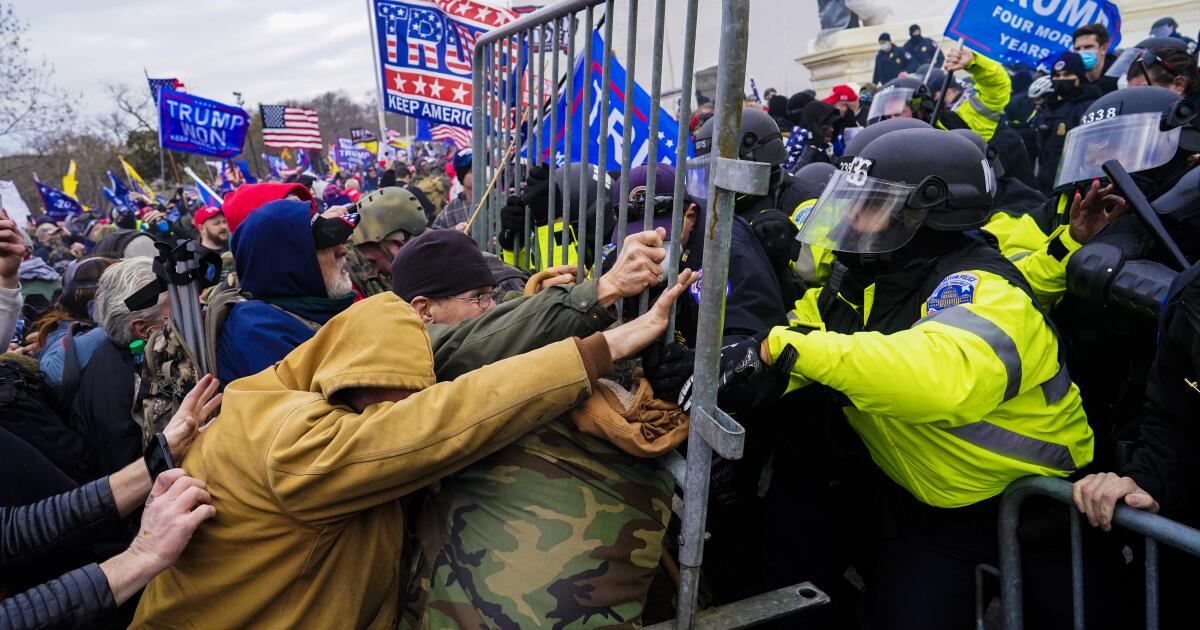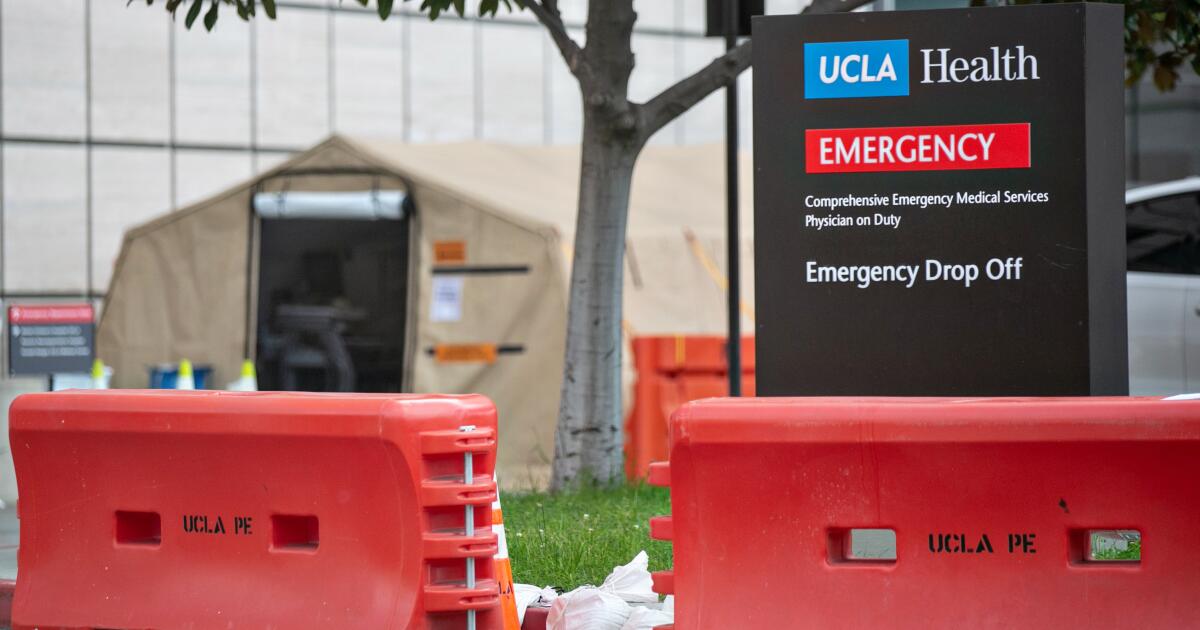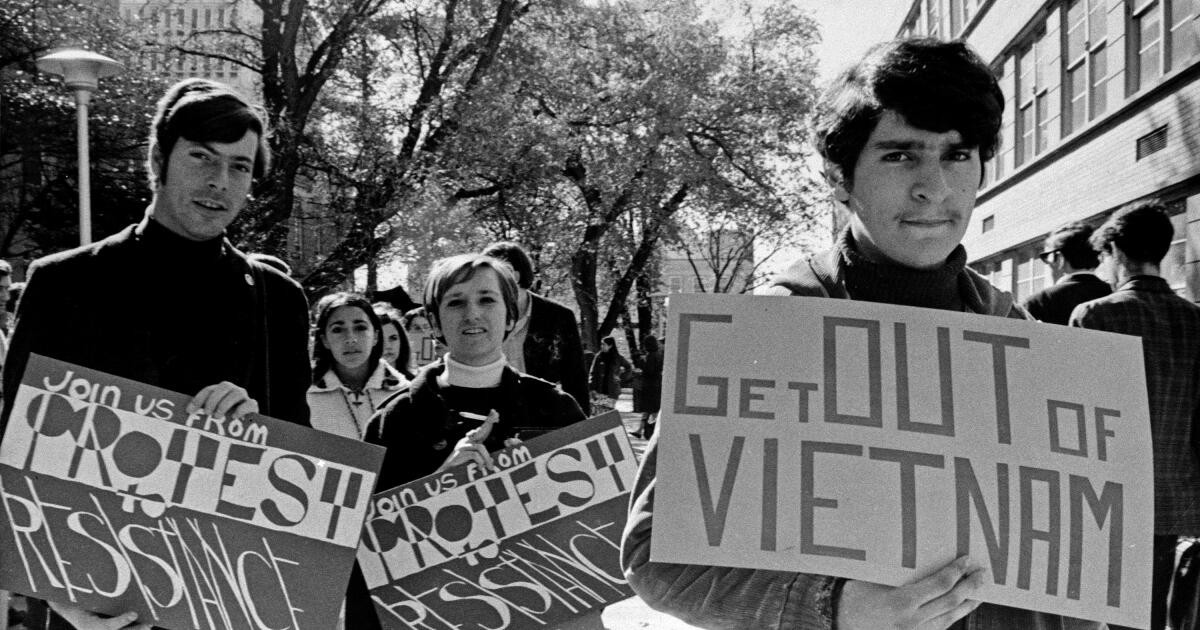“At the end of the Cold War, world powers reached a consensus that the world would be better off with fewer nuclear weapons. That era is over.”
That's the chilling opening line of Kathryn Bigelow's new movie, “A House of Dynamite.” Set the stage for what follows and spoiler alert: there is no Hollywood-style ending. The cold, hard truth it illuminates is that after half a century of work to reduce the threat of nuclear catastrophe, we are headed in the wrong direction.
Disturbing and intense, this film imagines just one of the ways millions of people could be wiped from the face of the Earth in the span of a single morning. Military experts and nuclear experts will no doubt object to some of the details and dialogue, but this movie isn't for them, it's for everyone else. And we hope it serves as a warning that we are approaching the edge of the abyss.
Despite these dangers, the vast majority of political leaders, foreign policy and defense experts, and for-profit news organizations abandoned the nuclear conversation a few decades ago. In addition to the 2023 Christopher Nolan biopic “Oppenheimer,” Hollywood did too. However, this lack of attention did nothing to reduce the nuclear threat, which, in many ways, is worse than ever.
Bigelow and writer Noah Oppenheim have done the world an incredible service by bringing to the fore the true and terrible nature of nuclear weaponry, while raising key questions about presidential authority, the chain of command, disaster planning, changes in technology, and even the concept of deterrence itself.
The film's treatment of missile defense is also timely, although estimates of the accuracy of our current system may be overly optimistic. As the Trump administration moves forward with a potential “Golden Dome” anti-missile defense systemwe need a scientifically sound review of what technology can and cannot do. Trying to “hit a bullet with a bullet” is a gamble, and the stakes couldn't be higher. The public also needs to understand that even if the national missile defense were to become reliable, which is unlikely, our adversaries could simply build more offensive missiles or missiles that can evade defenses. something the Russians have already invested in.
The only real way to protect this country (and the world) from nuclear war is through courageous diplomacy. “House of Dynamite” shows that even after decades of theorizing, planning, and spending billions on more precise nuclear weaponry, the fate of the planet ultimately depends on trust between adversaries and the mutual recognition that nuclear war is suicidal.
Today, building trust among the leaders of nuclear-weapon States may seem naive, but the only way forward is sustained dialogue and political will, backed by vigorous vigilance. It is what reduced the number of nuclear weapons around the world. from nearly 70,000 during the Cold War to the estimated 13,000 remaining today.
We also need an honest and genuine debate about the concept of nuclear deterrence and what constitutes stable global security. Constantly threatening a nuclear attack with increasingly precise and capable weapons and assuming that nothing will go wrong is reckless.
China is expanding its nuclear forcesupsetting the already unstable stability between the United States and Russia, two countries that are actively investing in modernizing their arsenals. Noting this, some countries that do not possess nuclear weapons are considering whether they should acquire them now. A change is needed; Complacency is not an option.
But nuclear experts and political leaders alone cannot solve this problem. The public has to commit.
People may see Bigelow's new film and think they can't help, which is understandable given the scope of the challenge. But as with most things, ordinary citizens have more power than they realize. Every major reduction in nuclear threats to date has been spurred by public commitment, from Mothers who oppose atmospheric nuclear testing. to Millions of people take to the streets to demand the freeze. of nuclear weapons production during the last arms race.
Today, the public needs to re-enter the conversation and start asking leaders questions they have been able to avoid for too long.
Former Defense Secretary William Perry warned that leaders are “sleepwalking” toward a new nuclear arms race. This film is our wake-up call. If the world does not change course, the nightmare that unfolds in “A House of Dynamite” will come true.
Governor Jerry Brown was 34th and 39th. gramgovernor of California and executive president of the Bulletin of Atomic Scientists.
Alexandra Bell is president and CEO of the Bulletin of the Atomic Scientists and most recently served as deputy assistant secretary for nuclear affairs at the U.S. Department of State.
Perspectives
Perspectives from the LA Times offers AI-generated analysis of Voices content to provide all points of view. Insights does not appear in any news articles.
Perspectives
The following AI-generated content is powered by Perplexity. Content is not created or edited by the Los Angeles Times editorial staff.
Ideas expressed in the piece.
- The post-Cold War consensus on nuclear weapons reduction has ended, marking a reversal of decades of progress toward disarmament and a shift in the wrong direction.
- The nuclear threat today is worse than ever despite half a century of work to reduce the risk of nuclear catastrophe.
- Political leaders, foreign policy experts and the media have largely abandoned serious engagement with nuclear policy, allowing the threat to escalate unchecked.
- Proposed missile defense systems like the “Golden Dome” represent an unreliable technological gamble that cannot genuinely protect the country from a nuclear attack.
- Diplomacy and building trust between adversaries represent the only effective means to protect the world from nuclear war.
- Current deterrence strategies that rely on increasingly precise and capable weapons are fundamentally reckless given the apocalyptic consequences.
- China's rapid nuclear expansion is destabilizing the already fragile balance between the United States and Russia.
- Historically, public pressure and commitment have been the driving force behind every major reduction in nuclear threats.
- Sustained dialogue and political will backed by strict monitoring among nuclear-armed States are essential to avoid catastrophic conflict.
Different points of view on the subject.
- Nuclear modernization and expanded deployments by Russia and the United States represent necessary responses to contemporary security challenges and perceived imbalances, and advocates argue that these steps are justified reactions to China's rapid nuclear expansion.[1]
- The probability of a nuclear war in 2024 remains comparatively low despite recognized geopolitical tensions and the presence of nuclear arsenals.[3]
- There is significant disagreement among nuclear security experts regarding the likelihood of escalation to nuclear conflict, with some assessing risks of nuclear war as considerably lower than others.[2]
- Both Russia and the United States are implementing extensive modernization programs that they consider essential to maintaining credible deterrent capabilities for national security purposes.[1]
- Missile defense systems represent an important component of comprehensive national defense strategies designed to address potential threats.
- The stability of the nuclear deterrent depends on maintaining a credible capability and clearly communicating determination to potential adversaries.












